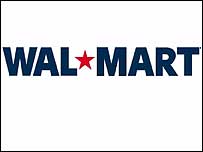
Why is that when a company has a weak or non-existent brand strategy they try and fix it with advertising?
Coles seems to be desperately trying to bolster what is widely regarded by the market as a flimsy brand strategy, by drafting the help of senior New York McCann Erickson advertising executives, according to the Sydney Morning Herald last week.
McCanns' is working alongside their Interpublic Group stablemates, FutureBrand, on a reported combined monthly fee of $750,000 and the team includes some Walmart account veterans - so we think we know where this is going. Coles had previously only made a few quiet asides about FutureBrand's involvement in the rebranding, unveiled at its much maligned strategy presentation at the end of August.
DIFFUSION thinks maybe the reticence by Coles Group chief executive, John Fletcher, to provide more details on the strategy was because it hadn’t really been worked out. Now that McCanns' have weighed in, it’s likely any strategy will be one led by massive brand advertising rather than the much needed fundamental brand analysis.
Yet there’s going to be a lot more work to be done on the proposed “everyday needs" monolith before Coles puts it in front of shareholders at the next presentation in November. The Coles Express, First Choice, Liquorland, Vintage Cellars, Kmart and Theo's Liquor names are all set to be axed for the single disingenuously named brand.
We’re still scratching our heads about the decision to axe both Express and Vintage Cellar brands. Express has been the bulwark for Coles' hugely successful foray into forecourt marketing and with the sale of Myer, Vintage was the only premium brand left in the portfolio with neither Target or OfficeWorks filling that space. It’s all down market from here; which leads us to ponder...
While Walmart's business model, as the 'king' of low prices, makes it the envy of retailers around the world model, DIFFUSION hopes Coles will not be following in its path. Consistently ranked in the top 10 of most crisis prone organisations in the US, Walmart's human resource, social and environmental policies have left its public in uproar.
In addition, we believe that international trends (aside from the US who still seem to be locked into the bigger-brighter-better-is-best notion) are indicating a move away from monolithic brands towards portfolio brands, with which customers can build more intimate relationships; it's also a smarter risk management strategy - if one brand fails, it will not affect the rest of the portfolio.
The advice we hope McCann is giving Coles is culturally sensitive to how, and from whom, we want to purchase in Australia. They should acknowledge the mistakes monoliths such as Walmart have made and base the new strategy on international best practice that is simply not US-centric.

